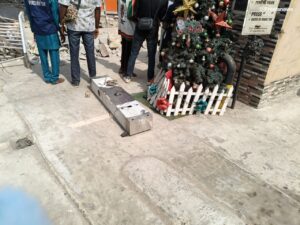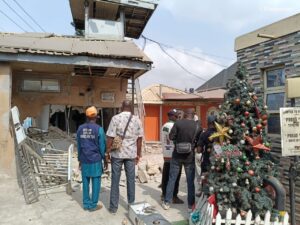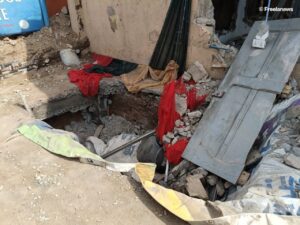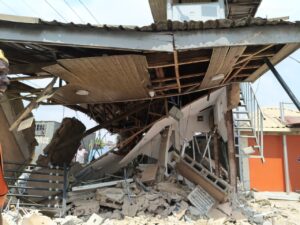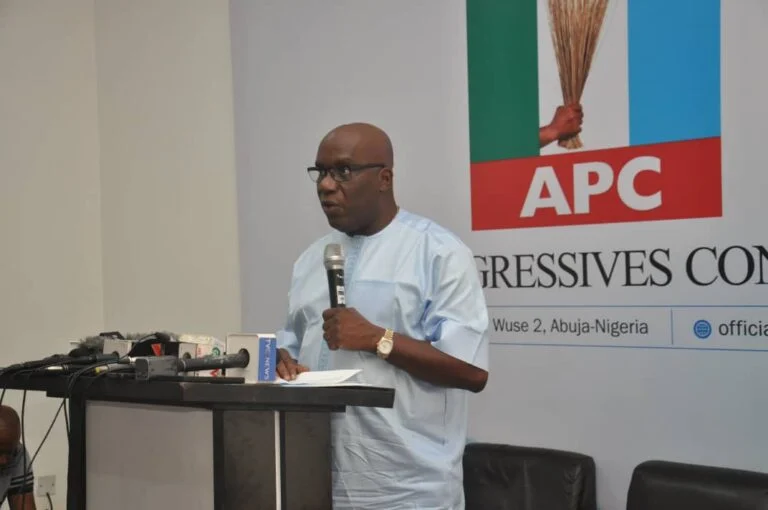No fewer than 7,875 Nigerian doctors are currently practising in the United Kingdom, according to the UK’s General Medical Council.
The GMC, which is the government body that maintains the UK’s official register of medical practitioners, also says India, Pakistan and Nigeria are the countries with the highest number of doctors practising in the UK.
A check on the website of the UK medical council on Thursday evening showed that the number of Nigerian doctors working in the UK had risen from 7,870 to 7,875 in less than a week
The council’s revelations generated reactions on Thursday from the Nigeria Labour Congress, the Nigerian Medical Association and the National Association of Resident Doctors.
The NMA described the ongoing migration of medical doctors as “the second peak of doctors’ mass exodus” after the mass departure of medical practitioners from the country in the 1990s.
On its part, the NLC expressed concern about the poor health sector and doctors’ exodus, saying the nation was in trouble.
India, Pakistan, Nigeria have the highest number of migrant doctors in the UK
But the GMD record further shows that India has 29, 228 doctors in the UK, while Pakistan comes second with a total number of 14,470. Nigeria comes third with 7,875 doctors practising in the UK.
According to statistics obtained from the UK council’s website, Nigeria is an African country with the highest number of doctors in the UK. Egypt comes second with 7,034 registered doctors in the UK, while South Africa has the third-highest African representation with 5,166.
Findings indicate that Pakistan and Nigeria have the highest number of doctors in the UK in relation to the total number of doctors at home.
10.5% of Nigerian-trained doctors practising in UK
Currently, there are 74,543 doctors registered with the Medical and Dental Council of Nigeria. With 7,875 of these doctors practising in the UK, it means 10.5 per cent of doctors registered to practise in Nigeria are in the UK alone.
India, which has over 29,228 doctors in the UK, has over 10 million doctors at home. This means less than 0.3 per cent of Indian doctors are in the UK while for Pakistan, 11.2 per cent of its 127,859 are in the UK.
Statistics from the World Health Organisation show that Nigeria currently has a shortage of medical doctors with a physician-to-patient ratio of four doctors to 10,000 patients. In the US, the ratio is 26 doctors per 10,000 people and 28 in the UK.
A search through the website of the UK medical council reveals that the UK has 205, 814 locally trained doctors.
This is apart from the over 70,000 doctors that migrate from other countries to practise in the UK.
Earlier in the month, 58 UK-bound medical doctors were stopped at the Murtala Muhammed International Airport, Lagos by the Nigeria Immigration Service because they didn’t have visas.
Investigations revealed that the 58 doctors were recruited by NES Health Care, a UK-based firm that helps over 150 private hospitals to employ doctors from all over the world.
According to an advertorial by the firm, the doctors were expected to work only 14 days a month and earn between £51,384 (N25.1m) and £98,112 (N47.9m) per year depending on the experience they have.
It was learnt that hundreds of Nigerian doctors had applied for the jobs advertised by NES Health Care; they wrote exams and were interviewed via Skype and offered employment but they had not been able to obtain visas due to the closure of the British High Commission caused by the COVID-19 pandemic. They are all expected to resume after the lockdown has been lifted.
Last week the UK announced a new ‘Health and Care Visa’ policy. The new policy aims to make it cheaper, quicker and easier for healthcare professionals to migrate to the UK, beginning in August.
Speaking with newsmen, the President of the NMA, Prof. Innocent Ujah, said doctors could not be stopped from migrating.
Ujah, however, said there was a need to improve the pay and work conditions of Nigerian doctors as this was the best incentive.
The NMA president stated, “This is the second peak of doctors’ mass exodus from the country. In the 1990s, doctors left Nigeria for Saudi Arabia and they are leaving again. I think what is happening is that they are not receiving the satisfaction they deserve. The work environment is not encouraging, the equipment for practice is inadequate. The salary is meagre. They go to where their service is appreciated.
“The issue of insecurity is also there, many doctors have been kidnapped. We don’t know maybe the kidnappers are targeting them or it is just a coincidence. What I think should be done holistically is for the government to conduct research and find out why the doctors are leaving.”
The President, National Association of Resident Doctors, Dr Aliyu Sokomba, attributed the exodus of doctors from Nigeria to poor working condition.
Sokomba, in an interview with one of our correspondents, said it was unfortunate that many hospitals in the country lacked basic medical equipment.
He said, “The work condition here is terrible when better opportunities come to our doctors leave. It is beyond what people think. The work condition is one thing the government has continued to neglect. This is demoralising. Why will someone continue to work in this kind of environment? Meanwhile, there is a place you can go, work and have job satisfaction, why won’t you leave?”
Commenting on the development, the NLC said the exodus of medical personnel did not look good. It stated that the nation had to appraise its reward system and the condition of service for health workers.
The NLC General Secretary, Mr Emmanuel Ugboaja, in an interview with one of our correspondents, said the exodus of doctors was an indication that the country was in trouble.
He stated, “When you see the running battle our workers in the health sector have been having with the authorities, particularly, the state governments which ordinarily should be catering for the populace, then you know we are in trouble.
“Our health facilities are not being improved. When you hear about the building of a hospital, you would hear of the humongous amount said to have been spent, but at the drop of a hat, the people who claimed to have built such world-class hospitals head to Europe to seek medical treatment. It does not add up.”
Punch

 BIG STORY2 days ago
BIG STORY2 days ago
 BIG STORY4 days ago
BIG STORY4 days ago
 BIG STORY4 days ago
BIG STORY4 days ago
 BIG STORY3 days ago
BIG STORY3 days ago
 BIG STORY2 days ago
BIG STORY2 days ago
 BIG STORY2 days ago
BIG STORY2 days ago
 BIG STORY2 days ago
BIG STORY2 days ago
 BIG STORY3 days ago
BIG STORY3 days ago





















